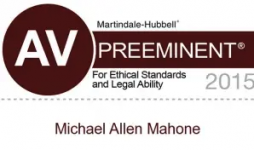
Attorneys are asked a ton of different questions on a daily basis. Some questions, however, are asked more frequently than others. Here are answers to some of the most common business litigation questions.
Answers to Common Business Litigation Questions
1. What is a contract?
A contract is an agreement between individuals or businesses in which one party agrees to do something in exchange for an agreement from the other party. Most contracts don’t necessarily have to be in writing; contracts can be oral, too. Louisiana’s laws regarding obligations and contracts are complicated, so if you have a question about whether you have a valid and enforceable contract, you should contact an attorney to discuss your situation.
2. What is a breach of contract?
A contract is breached when one party fails to fulfill his or her obligations under the contract without legal justification for doing so.
3. What damages can I receive for a breach of contract?
Damages in a breach of contract case are meant to put you in the same position you would have been in had the other side not breached the agreement. The available damages are case-specific, but can include items like out-of-pocket expenses incurred because of the breach, lost opportunities, and lost profits. A court can also order a party to actually perform the obligations owed under the contract.
4. What should I do if I get involved in a business dispute?
First, make sure to keep all of your records relating to the dispute. Business disputes are often complicated and involve multiple communications, agreements, and other documents. It’s important that you maintain these records so you can document the key facts surrounding the dispute. Then, if you feel the dispute cannot be resolved fairly, you should contact an attorney to discuss your options. Your attorney will review all of the documents that you have maintained, properly advise you on your rights, and come up with a plan to resolve your dispute, whether through negotiation or filing suit.
5. What is discovery?
Discovery is the opportunity for both sides to learn about the facts of the case before trial. In a business case, discovery typically consists of written discovery and depositions. Written discovery comes in many forms, but the most common types are requests for specific documents; specific, written questions called “interrogatories” that must be answered by the other side; or requests for another party to admit specific facts. In any business case, whether you are a plaintiff or a defendant, you will likely give a deposition unless we settle the case early in the process. A deposition is the opportunity for attorneys to ask you questions before trial. Your testimony will be given under oath, just as if you were in a courtroom in front of a judge and jury. This allows the other side to (1) know what you are going to say at trial and (2) learn additional facts that will allow them to better understand the case. It’s perfectly understandable that you may be nervous about giving a deposition, but rest assured I will be with you every step of the way. I will make sure you are well-prepared for the deposition and will be there with you when you give your testimony.
6. What is arbitration?
Arbitration is a way of resolving disputes outside of court. Typically, matters are arbitrated because the parties to a contract agreed in advance to have any disputes handled by arbitration. An arbitration is similar to a trial in that witnesses testify and evidence is presented; but, rather than being decided by a judge or jury, the case is decided by a designated individual or group of individuals. The decision of the arbitrator or arbitration panel is binding on the parties of the arbitration and may not be appealed except for very limited reasons.
7. What is mediation?
Mediation, like arbitration, is a way to resolve disputes without having to go to court. In mediation, a third party (called a mediator) attempts to negotiate a settlement between the parties. However, unlike with arbitration, the results of mediation are not binding on the participants. The parties can still pursue their claims if mediation is unsuccessful.
Call a New Orleans Business Litigation Attorney
These are just a handful of the most common business litigation questions. If you have any other questions or if you find yourself involved in a dispute, call a New Orleans business litigation attorney at (504) 564-7342. The Mahone Firm is here to help.






